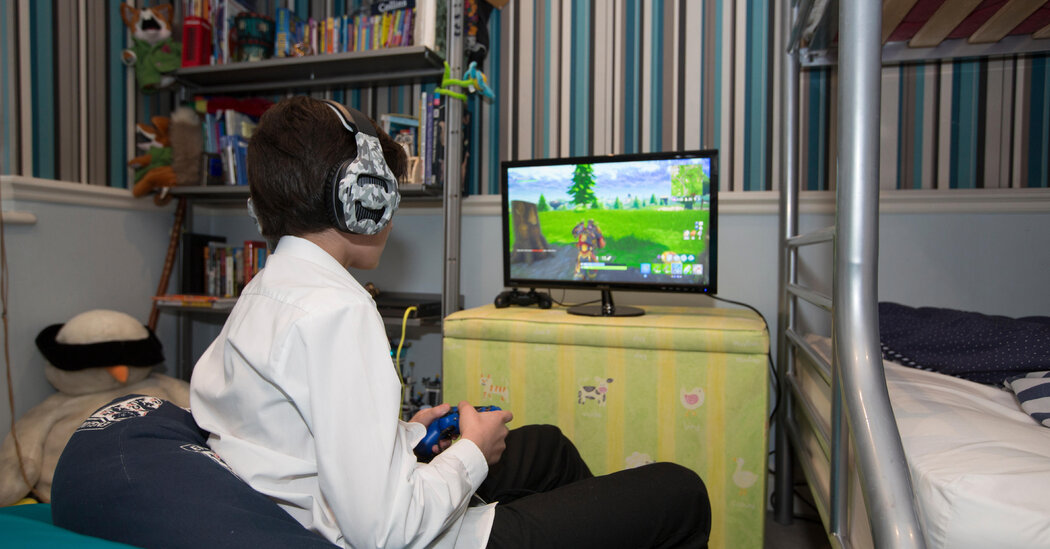The Federal Trade Commission on Monday announced a $520 million settlement with Epic Games, the developer of popular video games such as Fortnite and Fall Guys, over allegations that the company illegally collected information from children and, separately, tricked millions of players into doing so. from accidental purchases.
The deal includes record fines in two separate cases.
Epic agreed to pay $275 million to settle allegations from regulators that it violated a federal law, the Children’s Online Privacy Protection Act, by collecting personal information from children under the age of 13 who played Fortnite without verifiable consent from a parent. In addition, the company forced parents to “jump through hoops” to have their children’s data deleted and at times refused to honor parents’ deletion requests, the agency said in a legal complaint filed Monday.
The amount surpasses the $170 million fine — the previous record for child privacy violations — that Google sought to pay in 2019 over allegations it illegally collected data from children on YouTube and used it to target ads at them.
The FTC action comes at a time of heightened public concern about the mental health, safety and privacy risks that some popular social media networks and multiplayer video games may pose to children and teens. The record fine also sends a clear signal that the FTC is following through on commitments made by Lina Khan, the committee chair, to take a more assertive stance on the tech industry.
California enacted a sweeping online child safety law in September that is expected to go into effect in 2024. Last week, a tech industry trade group sued the state of California in an attempt to block it.
More about Big Tech
- Amazon: The e-commerce giant agreed to a settlement with European Union regulators that will force the company to change its practices, but also allow it to avoid billions of dollars in potential fines.
- Microsoft: The Federal Trade Commission has filed a lawsuit to block the company’s acquisition of video game maker Activision Blizzard for $69 billion.
- meta: John Carmack, a pioneer of virtual reality technology, is leaving Meta after more than eight years with the company.
- Foreign workers: As budget cuts ravage the tech industry, some foreigners on work visas face a daunting prospect: They must leave the United States unless they are hired within 60 days of being laid off.
The California law came a year after Britain introduced comprehensive online protections for minors. Last year, as UK regulators were developing that effort, Google, YouTube, Instagram, TikTok, Snap and other major platforms announced new safeguards for younger users around the world. The congress is also working to increase online safety for young people.
Fortnite, introduced by Epic Games in 2017, now has over 400 million players. It has since generated billions in revenue, largely through the sale of virtual accessories, such as costumes and dance moves, to players for their avatars, and through consumer product deals for products such as Halloween costumes and Fortnite-branded action figures.
Regulators also accused Epic of causing “substantial harm” to children by enabling standard live voice and text chats, as well as matching children and teen players with adult strangers on Fortnite teams, making younger users the subject of bullying, threats and harassment.
As part of the proposed settlement, the agency will require Epic to adopt high-privacy defaults for children and teens, including turning off live text and voice chat for younger users by default.
Epic also agreed to pay $245 million to refund consumers after allegations it used manipulative online practices known as “dark patterns” to trick players of all ages into making accidental purchases. Fortnite’s user interface included a counterintuitive, inconsistent and confusing layout that forced users to pay fees at the touch of a button, regulators said in a separate complaint.
Players may be charged while attempting to wake the game from sleep or while the game is loading a screen, the complaint said. Children eventually ended up in unauthorized charges without their parents’ knowledge. These so-called dark-pattern techniques resulted in hundreds of millions in unwanted costs for users, the agency said.
In a statement, Epic said that, in a rapidly changing video game industry, longstanding industry standards were no longer enough to protect players.
“No developer creates a game with the intention of ending up here,” the company said in a statement. “We accepted this agreement because we want Epic to be at the forefront of consumer protection and provide the best experience for our players.”
This is an evolving story. Check back later for updates.

